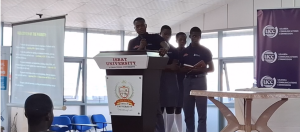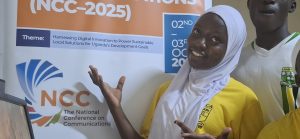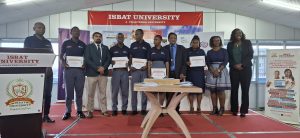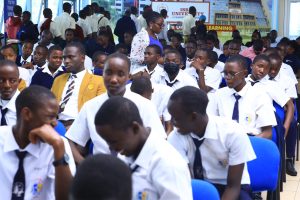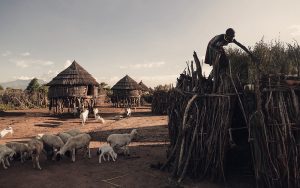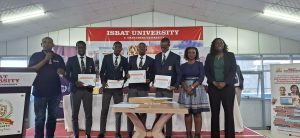St. Andrews Secondary School Lotome — Karamoja Moving Classroom: Taking Education to the Desert
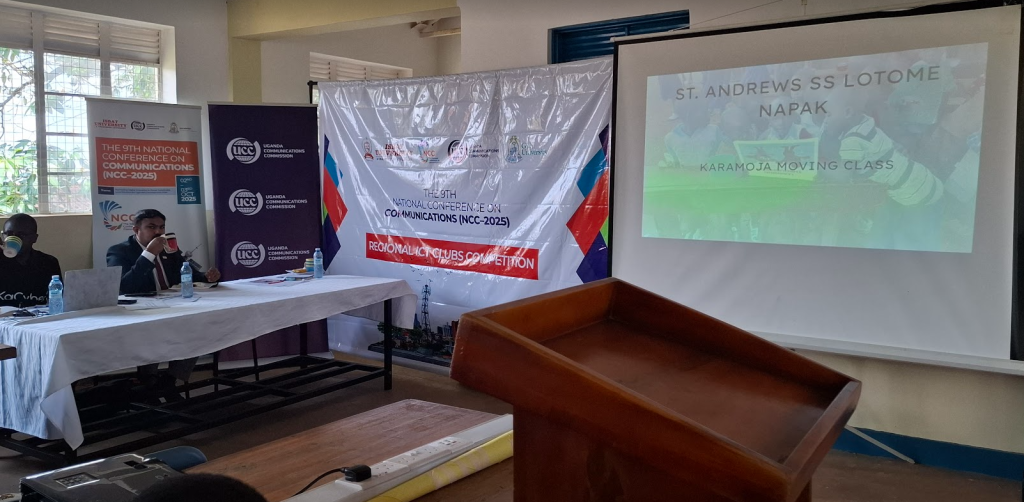
https://sites.google.com/view/karamoja-moving-classroom/home
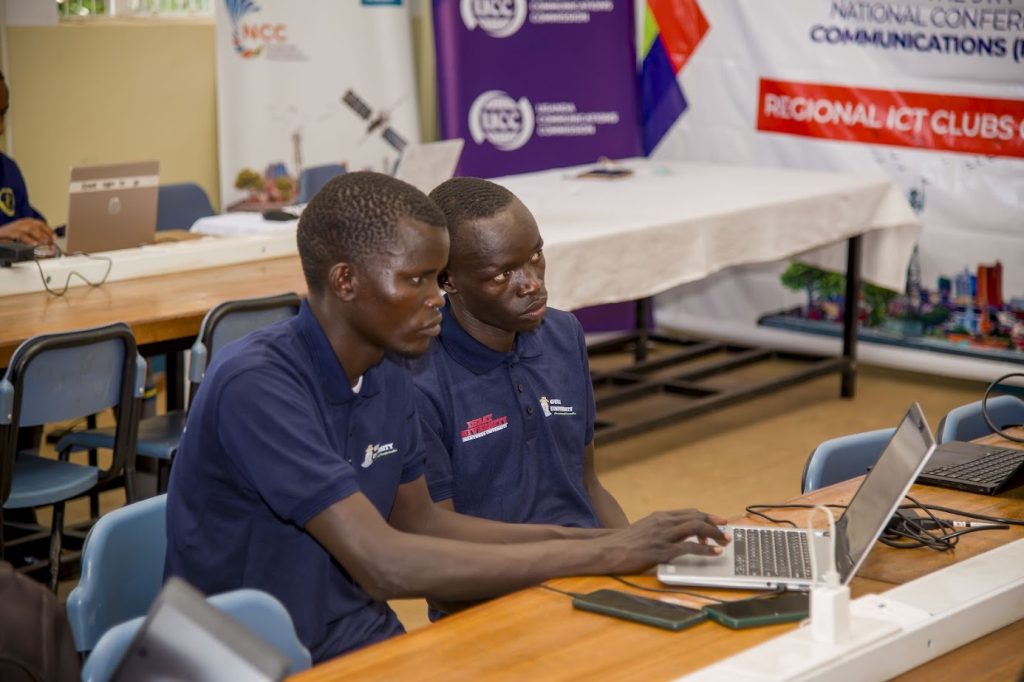
In the vast dry plains of Karamoja, where cattle roam freely and the wind carries the rhythm of drums across the golden horizon, a quiet revolution in education is unfolding. In Napak District, the students of St. Andrews Secondary School Lotome ICT Club have turned a simple idea into a transformative movement — the Karamoja Moving Classroom. Their innovation is reimagining how education can reach children in Uganda’s most mobile and underserved communities. It is not just a classroom; it is a story of hope, resilience, and the unstoppable power of young minds driven by purpose.
For generations, education in Karamoja has been out of reach for many children. The pastoralist way of life, marked by frequent migration in search of pasture and water, has made regular attendance in school nearly impossible. Families move constantly with their herds, and schools — bound by walls and fixed locations — have struggled to follow. As a result, countless children have grown up without the opportunity to learn how to read, write, or count. The young innovators at St. Andrews S.S. Lotome saw this gap not as a tragedy but as a challenge. They asked a bold question: If the children cannot reach the classroom, why can’t the classroom move with them?
Their answer came in the form of technology — locally inspired, culturally relevant, and built for mobility. Using solar-powered tablets, smartphones, and offline digital platforms such as Kolibri, the students created a portable e-learning system that could travel wherever the community went. The Karamoja Moving Classroom operates completely offline, powered by the sun and designed to survive the heat, dust, and distance of the desert. Inside the devices are preloaded lessons aligned with Uganda’s national curriculum and digital stories recorded in both Ngakarimojong and English. These stories, told by community elders and teachers, make learning feel close to home, turning each session into a connection between culture and technology.
The mission of the project is to empower pastoral communities through accessible, innovative, and sustainable education. By merging ICT tools with local knowledge, the club aims to promote critical thinking, creativity, and lifelong learning. Their vision extends beyond Karamoja — they dream of a future where every child in rural Africa can learn anytime, anywhere, even without a traditional classroom. In just a few months, this dream has begun to take root. The students developed lesson modules, recorded traditional stories, and trained community facilitators to operate the kits. They then delivered these mobile classrooms to distant cattle camps, turning open spaces into centers of learning.
The impact of the project has been nothing short of inspiring. More than 160 students have joined the ICT Club, using technology to create content that supports both primary and secondary education. Neighboring schools have borrowed the idea, replicating it within their own communities. Elders, once skeptical about “machines,” now record their voices to share wisdom and cultural values through the classroom kits. Across Karamoja, learning is no longer limited by location — children can study under a tree, beside a kraal, or during rest hours after grazing cattle. The digital lessons have become a new companion for young herders, teaching them literacy and life skills while preserving their cultural heritage.
Still, the road has not been easy. The project faces serious challenges, including limited access to digital cameras, smartphones, and tablets needed for recording and content creation. The remoteness of some pastoral communities makes it difficult to distribute and maintain the kits. Funding for community facilitators is scarce, and the club’s computer lab is too small to handle the growing demand for new materials. Yet, through all this, the students remain unwavering in their determination. One of them says with conviction, “We may lack the equipment, but we have the will to educate every child who is ready to learn.”
Beyond technology, the Karamoja Moving Classroom represents something larger — a new philosophy of learning that puts people before systems. It challenges the idea that education must happen in a fixed place, instead suggesting that knowledge should move freely, following the lives and rhythms of the people it serves. This mindset, grounded in empathy and innovation, has made the project a model for mobile education that could transform rural learning across Uganda and even beyond. It shows that digital inclusion is possible when innovation grows from within the community it aims to help.
The students and teachers at St. Andrews Lotome express deep gratitude to the Uganda Communications Commission (UCC) for creating and supporting the ICT Clubs initiative and to KAWA Uganda for providing mentorship and guidance. Their combined efforts have turned youthful imagination into tangible impact, proving that innovation doesn’t need big budgets — it needs big hearts. The club continues to refine its idea, improve its tools, and inspire others to build similar solutions in other parts of the country. Their ultimate goal is clear: to ensure that no Ugandan child is left behind, no matter where they live or how they move.
Today, as the sun sets over the dusty fields of Napak, the sound of laughter and learning rises from an unlikely classroom — a cattle camp. Children gather around a small solar tablet glowing in the twilight. They listen to a story in their mother tongue, learning new words, counting numbers, and exploring the world beyond their horizon. In that moment, the dream of inclusive education feels real, tangible, and alive. The classroom no longer waits — it walks with the people, powered by hope, technology, and the vision of a generation determined to learn.
For more information, contact the innovators of St. Andrews S.S. Lotome ICT Club through Gmail.standrewsssictclub@gmail.com or call +256 706 569 700 / +256 783 215 849. You can also explore their inspiring work at the Karamoja Moving Classroom Google Site. The winds of change are blowing through Karamoja, and this time, they carry the sound of children learning.

